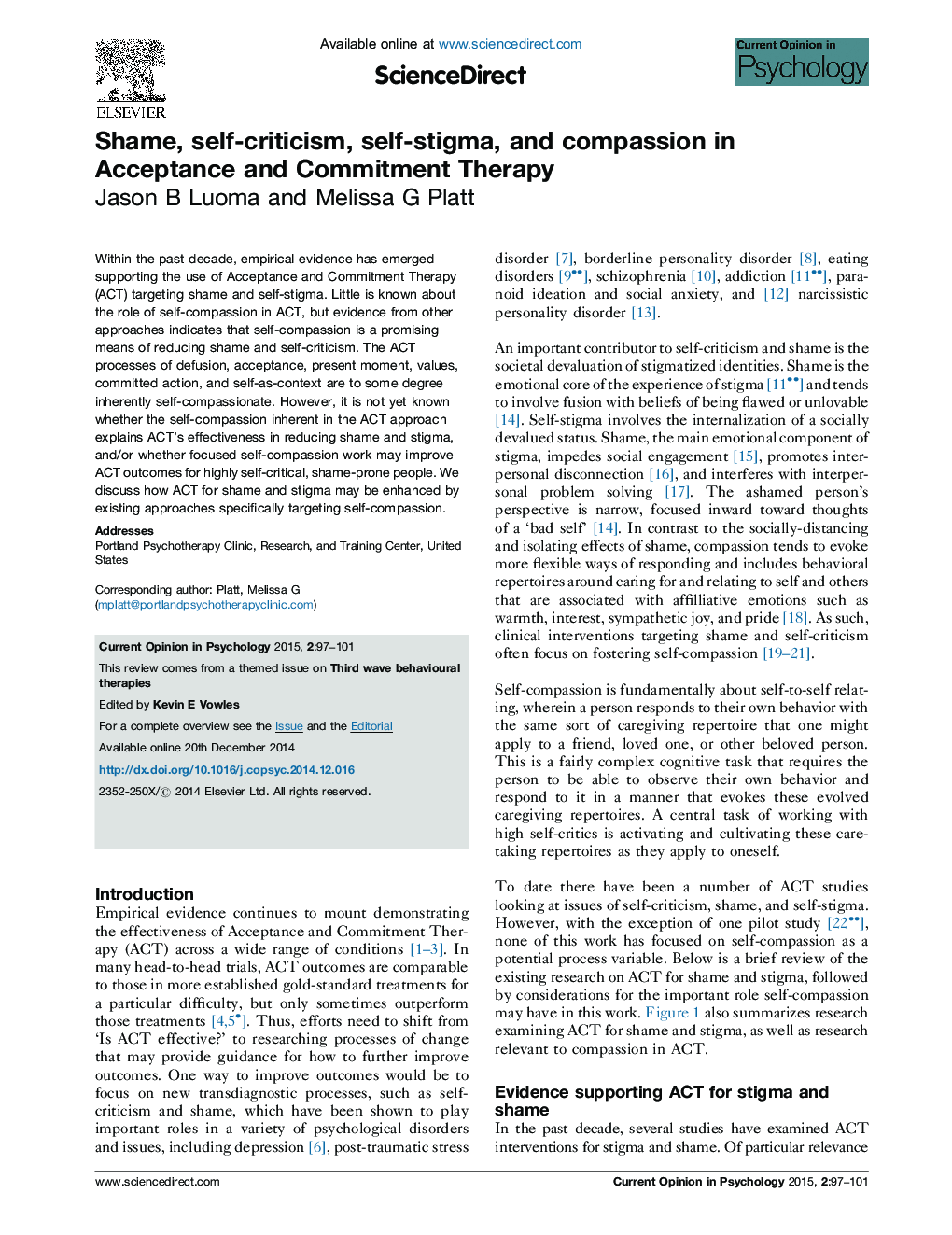| کد مقاله | کد نشریه | سال انتشار | مقاله انگلیسی | نسخه تمام متن |
|---|---|---|---|---|
| 879530 | 1471327 | 2015 | 5 صفحه PDF | دانلود رایگان |
• Acceptance and Commitment Therapy appears to effectively address shame and self-stigma.
• Self-compassion is a potential process variable in ACT.
• Compassion-based techniques have the potential to enhance ACT for shame and self-stigma.
Within the past decade, empirical evidence has emerged supporting the use of Acceptance and Commitment Therapy (ACT) targeting shame and self-stigma. Little is known about the role of self-compassion in ACT, but evidence from other approaches indicates that self-compassion is a promising means of reducing shame and self-criticism. The ACT processes of defusion, acceptance, present moment, values, committed action, and self-as-context are to some degree inherently self-compassionate. However, it is not yet known whether the self-compassion inherent in the ACT approach explains ACT's effectiveness in reducing shame and stigma, and/or whether focused self-compassion work may improve ACT outcomes for highly self-critical, shame-prone people. We discuss how ACT for shame and stigma may be enhanced by existing approaches specifically targeting self-compassion.
Journal: Current Opinion in Psychology - Volume 2, April 2015, Pages 97–101
